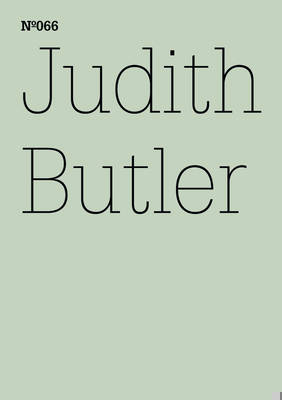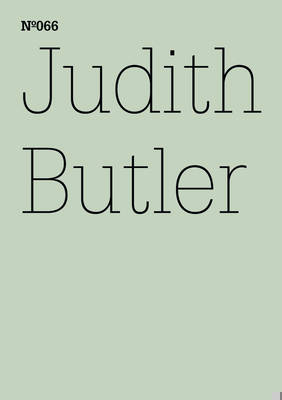
- Afhalen na 1 uur in een winkel met voorraad
- Gratis thuislevering in België vanaf € 30
- Ruim aanbod met 7 miljoen producten
- Afhalen na 1 uur in een winkel met voorraad
- Gratis thuislevering in België vanaf € 30
- Ruim aanbod met 7 miljoen producten
Zoeken
Omschrijving
"Love involves not being dead for the other, and the other not being dead for one," Judith Butler writes about the philosopher Georg Wilhelm Friedrich Hegel and love. On the basis of his short essay "Love" (1797-98) and the "Fragment of a System" (1800), she examines Hegel's early reflections on love. According to Butler, the key lies in reversibility, as it happens that in Hegel's writing, just as in love, the authorial voice changes direction and makes a statement that puts the previous one in question. Butler states that love has a logic "defined by its indefinite openness." Self-hatred and self-love, the relationship between the individual and the world, between the living and the dead, the emergence of the material world and love as dispossession of the self, are some of the topics of this essay about the "root of our own being."
Philosopher Judith Butler ( 1956) is Professor in the Rhetoric and Comparative Literature Departments at the University of California, Berkeley, and Visiting Professor in the Humanities at Columbia University, New York.
Philosopher Judith Butler ( 1956) is Professor in the Rhetoric and Comparative Literature Departments at the University of California, Berkeley, and Visiting Professor in the Humanities at Columbia University, New York.
Specificaties
Betrokkenen
- Auteur(s):
- Uitgeverij:
Inhoud
- Aantal bladzijden:
- 40
- Taal:
- Engels, Duits
- Reeks:
- Reeksnummer:
- nr. 66
Eigenschappen
- Productcode (EAN):
- 9783775729154
- Verschijningsdatum:
- 20/04/2012
- Uitvoering:
- Paperback
- Afmetingen:
- 21 mm x 148 mm
- Gewicht:
- 100 g

Alleen bij Standaard Boekhandel
+ 14 punten op je klantenkaart van Standaard Boekhandel
Beoordelingen
We publiceren alleen reviews die voldoen aan de voorwaarden voor reviews. Bekijk onze voorwaarden voor reviews.








